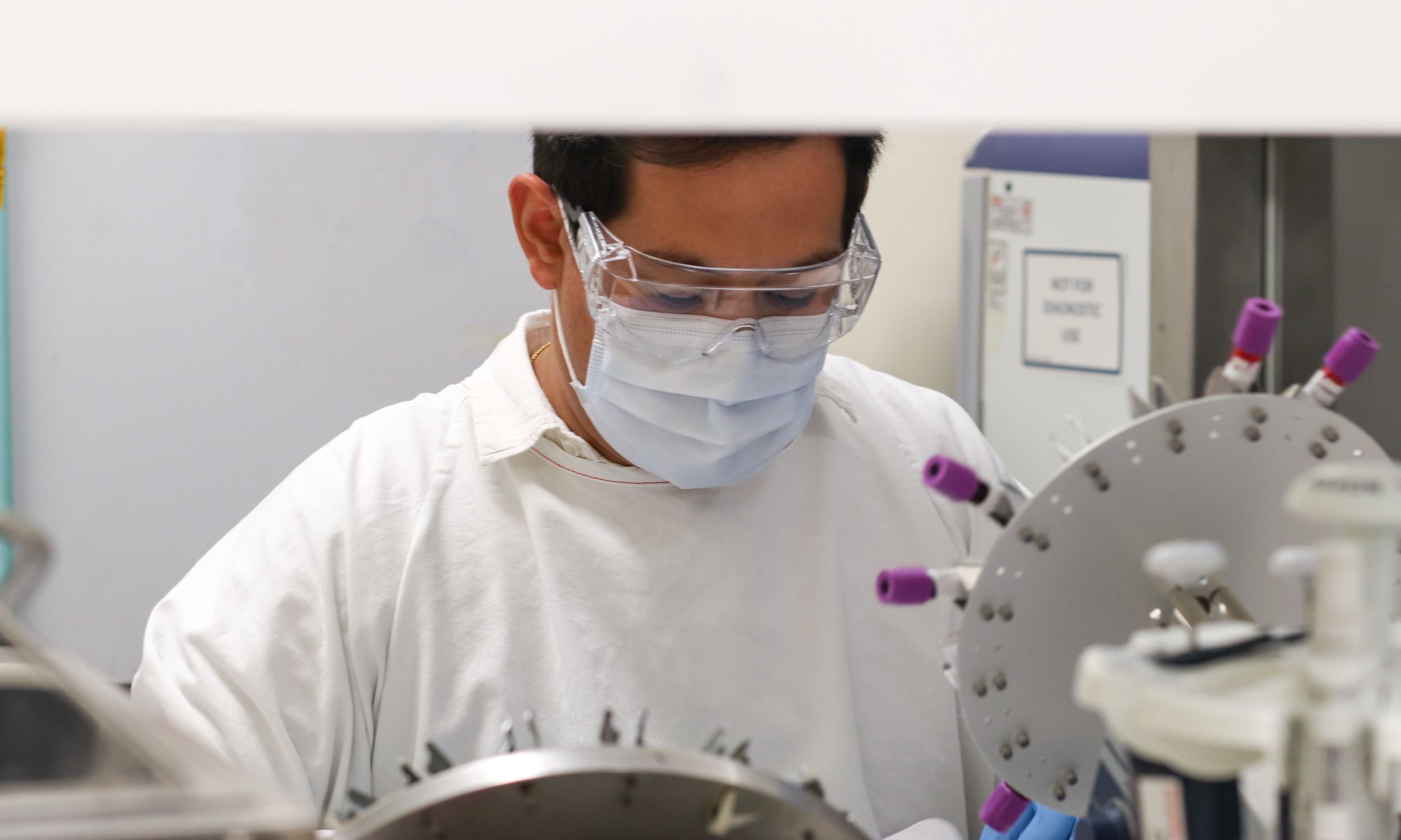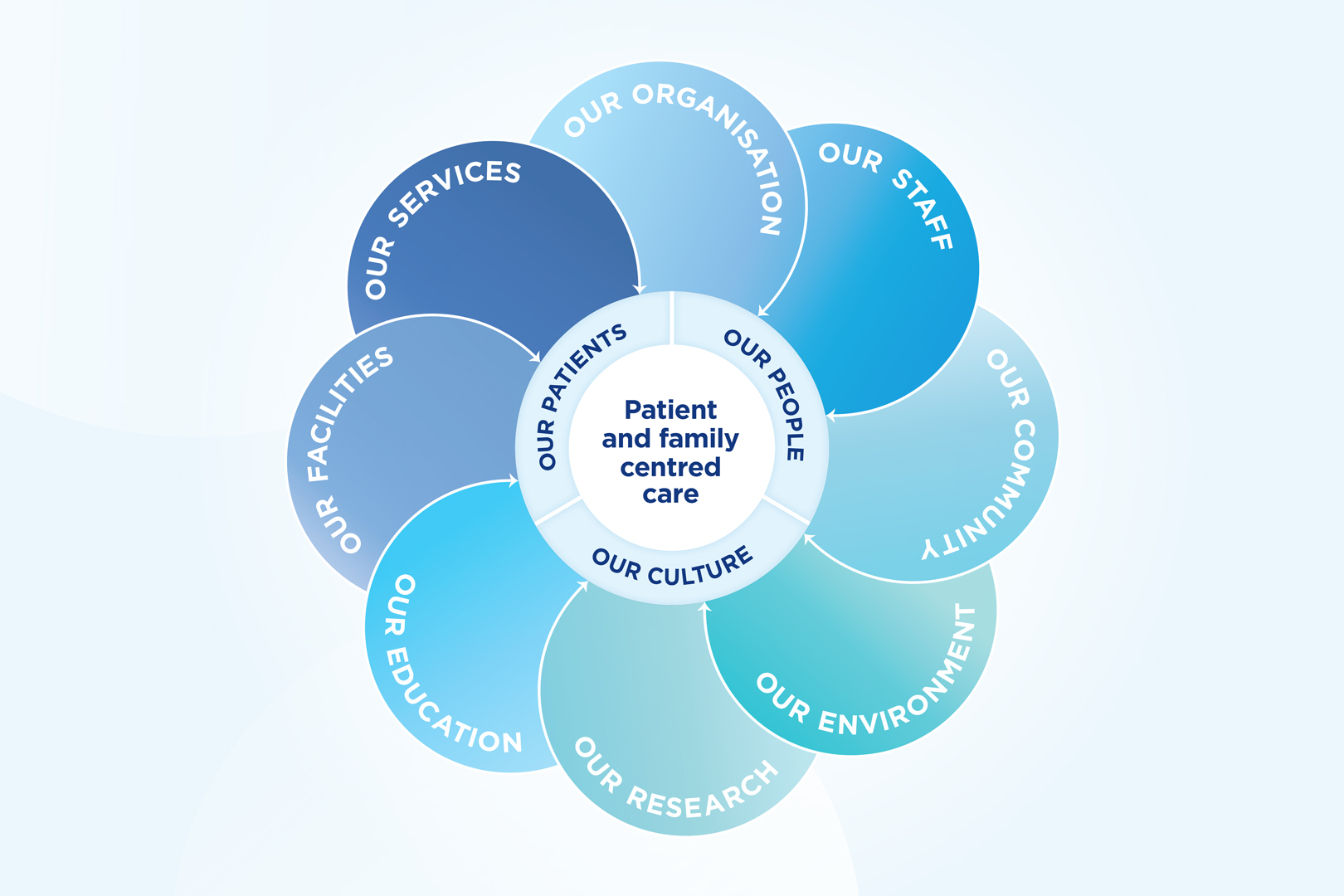
Models of Care
Precision medicine
Strategies based on precision medicine are emerging across many models of clinical care and research. Focus is moving to identifying genetic changes predisposing an individual to a medical condition or a complication following drug therapy. From that information, appropriate therapeutic or preventive actions can be initiated.
For example, in precision oncology the acquired genetic change in an individual’s tumour is identified through somatic DNA diagnostic testing, and this information is used to guide ongoing management. The location of the tumour is no longer the only factor in determining the best treatment. Potentially toxic therapies that have low chance of success can be avoided or replaced by other treatments. Patients with rare cancers, that might not otherwise be treatable, can now access drugs designed for more common tumours when it can be shown that the genetic defects in the common and rare tumours are the same.
In clinical trials of new therapies, the precision medicine approach allows stratification of patients based on the underlying genetic defect. This is illustrated by cystic fibrosis, a common disorder in some communities, caused by DNA pathogenic variants (previously called “mutations”) in the CFTR gene. While many different changes in the CFTR gene lead to cystic fibrosis, they are quite different in how they impair function of the CFTR gene. Precision medicine allows the DNA defect to be identified and then links this to therapies specifically designed to target that defect. Precision medicine for cystic fibrosis has been an important breakthrough leading to impressive long-term benefits.
The Institute of Precision Medicine & Bioinformatics provides the infrastructure and networks to facilitate precision medicine diagnostics at Sydney Local Health District where health professionals involved in clinical care and medical research work side by side to ensure patients and families are provided with this sophisticated approach to medical management.

Bioinformatics
Bioinformatics is a field of study that combines biology, computer science and statistics to analyse and interpret biological data. It involves the development of software tools, analysis pipelines and algorithms for the storage, retrieval, analysis and interpretation of large amounts of biological data. It plays a critical role in analysing and interpreting large-scale omics data, leading to insights into fundamental biological processes, disease mechanisms and personalised medicine by leveraging computational and data-driven approaches.
Bioinformatics tools allow for the analysis and integration of molecular data from various sources, including genomics, transcriptomics, proteomics and metabolomics. In the field of precision medicine, this allows researchers and clinicians to develop a more comprehensive understanding of a patient's genetic profile, which can inform personalised treatment plans. Bioinformatics tools and algorithms also help to identify biomarkers, which are measurable indicators of a patient's disease state or response to treatment. Biomarkers can be used to predict a patient's response to a particular therapy, allowing clinicians to develop personalised treatment plans.
Dr Abdul Baten, Genomics Bioinformatician, has led the bioinformatics portfolio at the Institute of Precision Medicine & Bioinformatics since 2021. He provides extensive bioinformatics support to the Medical Genomics and Microbiology Departments, and Institute of Haematology at RPA Hospital with multiple large-scale projects as well as day to day bioinformatics projects and activities. Dr Baten is also an adjunct senior lecturer in the School of Medical Sciences of the University of Sydney and welcomes opportunities for research collaboration, prospective Masters/PhD student supervision etc. Potential scholarship top-up funding is available from the Institute of Precision Medicine & Bioinformatics for selected MSc students.
For more information contact Dr Baten at abdul.baten@health.nsw.gov.au.
Engaging consumers, health professionals and students
At Sydney Local Health District we have a commitment to cross-cultural patient, carer and family centred care. This embodies respect, compassion, support and responsiveness to the needs, experience, diversity and preferences of our patients, families, carers and the community.

Sydney Local Health District’s focus on patient and family centred care makes engagement with the community essential in precision medicine to ensure all participate in, and contribute, when ill health requires an intervention, or a preventive health strategy to be implemented. It also means that a range of health professionals will be involved in the short and long-term care of patients and families. These health professionals need to be engaged to ensure up-to-date knowledge of developments in precision medicine. The Institute of Precision Medicine & Bioinformatics education and mentoring initiatives are focused to meeting this need. In addition the Institute, has adopted an additional strategy through identifying discipline “champions” who function to expand expertise in precision medicine amongst their colleagues.
Our Clinical Genetics Service is forging partnerships with clinicians in multiple disciplines at RPA and Concord Hospitals to promote greater use and awareness of precision medicine. Leadership in understanding the genetics of renal disease is coming from this service.
In collaboration with the Department of Chemical Pathology at RPA Hospital, an innovative model of precision medicine is being developed in familial hypercholesterolaemia, a common genetic disorder, with the focus on general practice, where preventive precision medicine is best started within the community. Engagement with GPs is key to developing more effective strategies to detect those at risk before the damaging effects of cholesterol are established.
While the present applications of precision medicine are impressive, there is more to come. Emerging clinical initiatives will need to be captured and implemented into practice. An example is pharmacogenomics, which allows genetic markers to guide the selection of the “right drug for the right person at the right dose”. The concept of pharmacogenomics has been around for a number of years but its uptake by health professionals has been limited due to difficulties interpreting the genetic result in the context of changes to drug dosage. The Institute of Precision Medicine & Bioinformatics will engage with “clinical champions” to include this aspect of precision medicine in models of care or medical research protocols.
For more information how members of the public, health professionals and students can participate in precision medicine contact the Institute of Precision Medicine & Bioinformatics at SLHD-IPM&B@health.nsw.gov.au